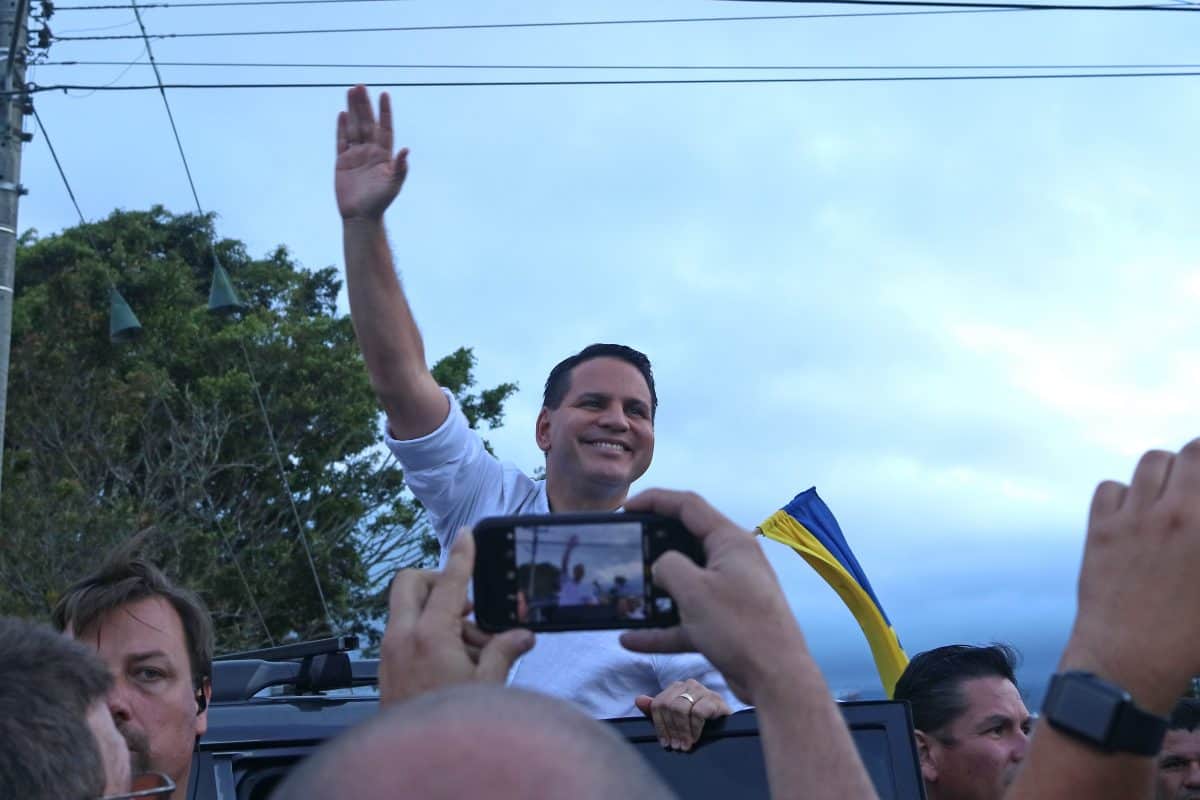Christiane was a pro-Soviet woman who went into a coma in socialist France before the fall of the Berlin Wall. Eight months later, when she woke up, her son Alexander wanted to avoid the additional trauma his mother would suffer upon seeing the arrival of capitalism and, so he set up a scheme to make her believe that life was the same.
I won’t describe the whole plot of the film “Goodbye Lenin!” (Wolfgang Becker, 2003), because probably most of us have seen it, and others would like to watch it to understand why I’m comparing it to the outcome of Costa Rica’s presidential campaign. Basically, it’s because I think that if a Costa Rican had entered a coma in January and woken up in April, the resulting shock would have sent the patient back into a coma, or the Great Beyond.
Former candidate Fabricio Alvarado (National Restoration, PRN) went from being the revelation of the campaign, to becoming a challenger of the traditional coexistence that we as Costa Ricans are willing to criticize, but not to lose. That coexistence includes our fame as a human rights defender (despite a sizeable to-do list in that regard), devoted to the Virgen de los Ángeles and enamored of our electoral process, no matter how “fed up” we say we are of politics. We’re a rare case: a country that lays flowers on the steps of its Supreme Elections Tribunal (TSE).
Apart from the virtues of the winner, Carlos Alvarado – which can be summarized as presenting himself as a man without charisma, but a well-balanced person – Fabricio Alvarado and his team committed the (political) sin of believing they were had the advantage on Feb. 4. It turns out that their triumph in the first round was a single snapshot of that moment in a crazy campaign. Voters had been dizzied by religious claims, but most of all, were rejecting the most traditional politics.
The factors that came into play in this campaign should be studied by professionals in political science, sociology and perhaps psychology as well, but let’s review a few highlights in the evolution of the PRN campaign. Fabricio’s “sin” was a failure to manage that rejection of traditional politics. In the weeks following the first round, he surrounded himself with the most traditional and least popular factions of the historical dominant parties, Social Christian Unity (PUSC) and National Liberation (PLN). Drawn by Fabricio’s “Christian values,” by the possibility of gaining influence over him, or by resentment against the Citizen Action Party (PAC), some leaders from the old parties approached Fabricio, and he thought that this was good.
This was compounded by other factors, difficult to recover from. One of them was the mistrust generated even within the evangelical population: those voters believed Fabricio to be too extreme. Another was the enormous gaps in Fabricio’s thinking, disguised by his communicator skills, but exposed in a raw way whenever anyone separated the wheat from the chaff. Yet another weakness, related with the previous one, were his contradictions, some incurred by him, and others by members of the team that surrounded him. Some of those team members had gotten to known him only a few days before and didn’t respect him as a leader.
The colors and format of a traditional, pretty campaign was useless this time around, as were presentations in a hotel and a small plane that passed over a stadium in the middle of a soccer game. Costa Ricans aren’t moved by that anymore – at least, not enough. The support of famous soccer players isn’t enough, either, if that had been the case with Keylor Navas (who came close to being presented as a Fabricio supporter).
Costa Rica has earthly problems, but this election season ended over the rainbow
The PRN campaign was crumbling with each passing day, while on the other side things looked more boring, less spectacular, but more balanced. That’s how we reached Holy Week, when, most likely, there were priests who called on congregants in subtle or not-so-subtle ways to defending the “values” (yes, but Catholic ones). We learned about secret meetings with Fabricio’s campaign leaders and the request to pastors to look for “blessings” (money) in spite of the great amount of money that PRN can now receive from state doffers. We also learned about some campaign expenses to the tune of millions of colones in favor of Fabricio and PRN chief Carlos Avendaño.
Even so, the elections on Holy Sunday seemed even, with no new polls from University of Costa Rica (UCR) and without the last poll from the private pollster Opol (cancelled in the middle of questionings because a pollster was photographed with PRN flags in his car. Seriously). We kept on living a parallel life, just like Christiane in her fake Soviet room.
At the end of Sunday’s vote when I received reports from various sources, all favorable to the PAC, I didn’t believe it. They seemed absurdly negative for Fabricio. However, just after 8 p.m., the TSE released a blow that made us stand up and see the “real reality.” With 90 percent of the reports, it was at 60.6 percent for the PAC, with only 40 percent for the PRN. We didn’t even have to put on our glasses to watch the TV. Fabricio was not what we thought, and neither were we.
That’s how Costa Rica said: “Goodbye, Fabricio.” Maybe next time.
Read more of Alvaro Murillo’s “No Sugar, Please” columns here.
Álvaro Murillo is an experienced journalist who specializes in political coverage and has written for La Nación, Semanario Universidad and El País. In “No Sugar, Please,” his twice-monthly column, he explores politics in its broadest terms, from the halls of government to community life. Connect with him on Twitter.
Hey, by the way: remember this?






